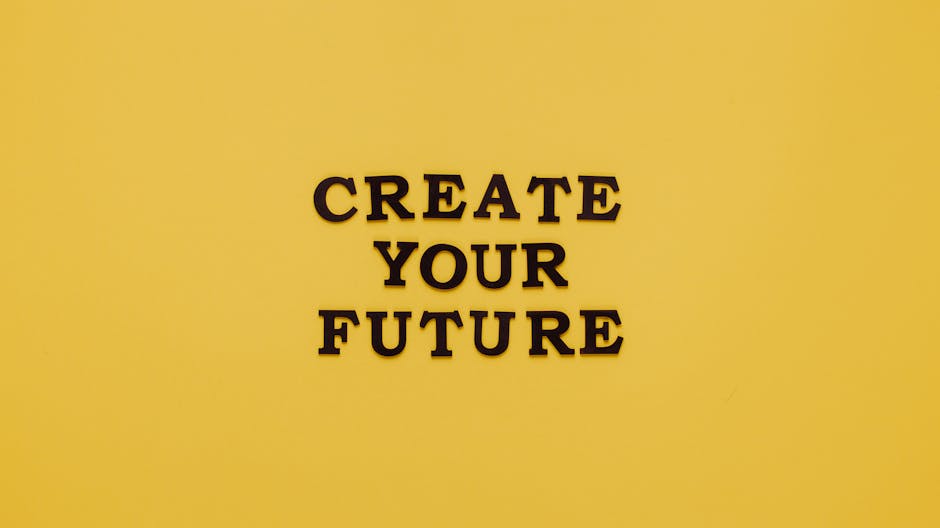Beyond the Resume: Elevate Your Online Presence for 2025 Success
In today’s digital-first world, the traditional resume is no longer the sole vessel for showcasing your professional credentials. As we transition into 2025, it's becoming increasingly clear that your online presence—spanning social media, personal websites, and digital portfolios—plays a pivotal role in career advancement. The stakes are high; employers are keenly interested in candidates who not only possess the requisite skills but also reflect a unique personal brand online. So, how can you leverage your digital footprint effectively? Let’s delve into innovative strategies to enhance your online presence, boost your employment prospects, and ensure you stand out in an ever-evolving job market.
The New Age of Career Opportunities

The job landscape has undergone a significant transformation, especially post-2023. With the rise of remote work, the gig economy, and the increasing reliance on technology in hiring processes, candidates must adapt to stay relevant. So where does that leave the traditional, paper-based resume? While it’s still essential, it should now complement a comprehensive online presence rather than serve as the sole focus of your job application strategy.
Understanding the Digital Footprint

Your digital footprint encompasses all the traces you leave behind on the internet, from social media profiles to blog posts. According to a report by the Harvard Business Review, employers are increasingly looking at candidates' digital footprints to gauge their professional demeanor and cultural fit. Every tweet, LinkedIn post, or blog article could be scrutinized by potential employers. Therefore, it’s essential to curate an online image that aligns with your career aspirations.
Auditing Your Online Presence

Before enhancing your online presence, take the time to audit it. Start by searching your name on various platforms and see what information appears. Are there any outdated photos, unprofessional comments, or irrelevant posts that could raise eyebrows? Conducting a digital footprint audit allows you to identify these issues and take the necessary steps to control your online narrative.
Building Your Personal Brand

Your personal brand goes beyond a logo or a catchy tagline; it embodies your values, skills, and personality. Think of it as a comprehensive view of who you are as a professional. A solid personal brand can significantly boost your job prospects, especially as employers increasingly prioritize cultural fit over skills.
Consistency is Key

For 2025, ensure that your personal brand is consistent across all platforms. Your LinkedIn profile, Twitter account, and personal website should present a cohesive image. This consistency makes you more recognizable and trustworthy to employers. According to a study by Moz, a consistent personal brand can increase employers’ perception of your competence and professionalism.
Define Your Unique Value Proposition (UVP)

What sets you apart from the competition? Identifying your Unique Value Proposition (UVP) allows you to communicate your distinct strengths and qualifications effectively. Your UVP focuses on the unique combination of skills, experiences, and personal attributes that make you an indispensable asset to potential employers.
Crafting a Compelling Narrative

Storytelling is a powerful technique to communicate your UVP. By weaving personal anecdotes into your LinkedIn summary or online portfolio, you engage potential employers on a deeper level. Think of your career journey as an evolving story—each role, experience, and challenge is a chapter that highlights your resilience and growth. For guidance on crafting your resume, check out "The Art of Storytelling in Your Career Journey."
Leveraging Social Media for Career Development

Social media wasn’t designed solely for personal connections; it’s also a fertile ground for professional networking and job hunting.
LinkedIn: Your Online Resume

While LinkedIn has been a staple for professionals for years, using it effectively in 2025 is paramount. Regularly updating your profile with skills, recommendations, and portfolio pieces makes it more dynamic. Engaging with your network through comments or shares can enhance visibility; think of it as an ongoing conversation where you can showcase your expertise.
Content Creation and Sharing

In 2025, sharing your insights, articles, and thoughts on industry trends is a strategic move. By posting regularly, you position yourself as a thought leader in your chosen field. If you’re unsure where to start, consider writing about your experiences during career transitions or lessons learned from challenges.
Instagram and Twitter: Creative Portfolios

While LinkedIn is your professional hub, platforms like Instagram and Twitter can serve as avenues to showcase creative work or thoughts on industry developments. Using relevant hashtags and engaging with industry influencers can exponentially increase your reach.
The Value of Networking Online

Networking transcends physical boundaries, enabling you to connect with experts and peers from around the world. Attend virtual conferences, participate in online workshops, and actively engage in discussions. You’d be surprised how many job opportunities arise from casual conversations on these platforms.
Crafting Digital Portfolios

As job applications evolve, a digital portfolio is becoming an essential asset for showcasing work. It allows candidates to present projects, certifications, and even recommendations in an interactive format.
Showcasing Work in a Visual Way

Your portfolio should not just be a collection of documents but an engaging representation of your work. Focus on design and user experience to captivate your audience. Platforms like Behance or WordPress serve as excellent tools for building portfolios, enabling you to highlight your work appealingly.
Storyboarding Your Career Journey

Consider using methods like storyboarding to plot your career journey visually. Such methods enable potential employers to grasp not just your skills but the context and significance of your experiences.
Embracing Technology in Job Applications

With technology continues to shape the job market, candidates must harness the tools available to them effectively.
AI and Resume Optimization

In an era where AI screening tools review resumes, ensuring your application is optimized for these systems is crucial. Incorporate relevant keywords while maintaining a human touch. For more insights, refer to "Optimize Your Resume for AI Recruiters."
The Science of Color and Emotion
Research shows colors can evoke emotions and influence perceptions in professional contexts. Carefully choosing color palettes for your resume and portfolio can enhance engagement. Explore the psychology of color in resumes through this link: "The Psychology of Color In Resumes."
The Rise of the Metaverse and Digital Resumes
As technologies like the metaverse emerge, job applications are evolving into immersive experiences. Creating a digital or augmented reality resume could give you a competitive edge in 2025.
Nurturing Soft Skills
While technical skills are vital, soft skills now hold equal importance in a candidate's marketability.
Showcasing Emotional Intelligence
Employers are increasingly prioritizing emotional intelligence in potential hires. Highlighting your ability to work effectively with others and manage emotions, particularly in high-pressure scenarios, can be a tremendous asset.
Gamification of Career Advancement
Gamification is revolutionizing job applications, as interactive and engaging elements encourage candidates to think outside the box. Incorporating quizzes or challenges into your application process allows you to showcase your unique skills creatively.
Building Genuine Relationships
Networking is about more than just making connections; it’s about building authentic relationships.
Virtual Networking Events
As more professionals shift to online platforms, networking events have embraced virtual formats. Attend webinars or online workshops to meet industry leaders.
Authenticity Over Numbers
Focus on nurturing meaningful connections instead of merely increasing your LinkedIn connections. Engage with quality content and conversations that resonate with your interests and aspirations.
Final Thoughts
In conclusion, as we navigate 2025, it's imperative to recognize that your online presence is as crucial—if not more so—than a traditional resume. By auditing your digital footprint, nurturing your personal brand, leveraging social media effectively, and embracing new technologies, you can significantly enhance your career prospects. The job market is not just a place of competition; it’s a canvas for innovation and connection. Your journey to career advancement starts here, so take that leap and let your online presence work in your favor!




